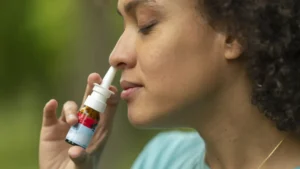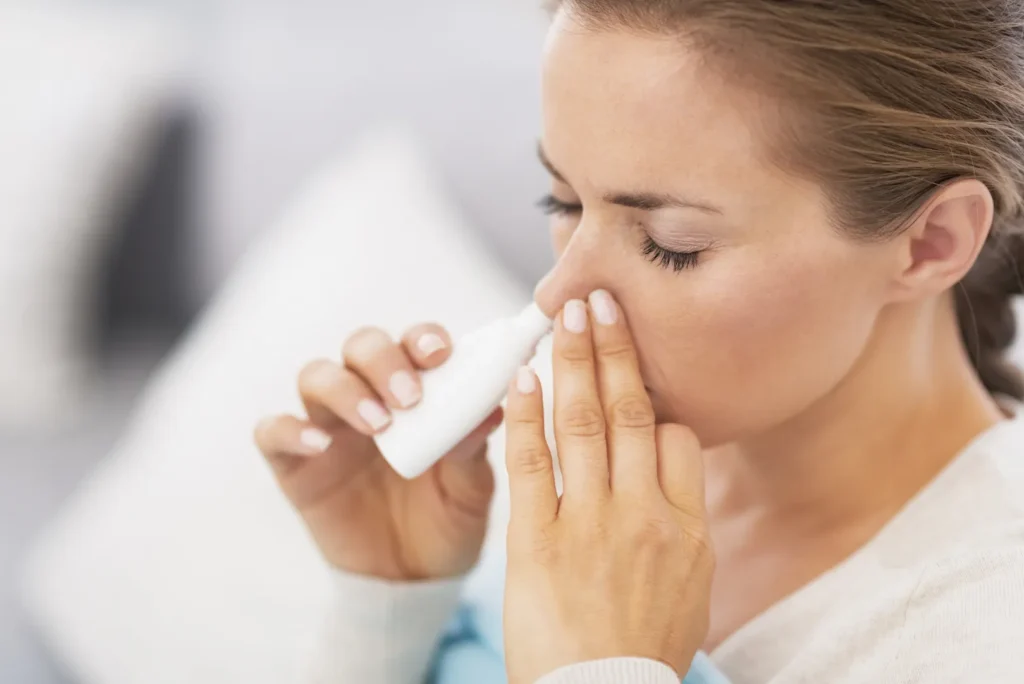Are you reaching for antihistamines a little too often? It’s not uncommon to rely on these medications to clear up your seasonal allergies or to reduce those nagging cold symptoms. However, what happens when the occasional pill becomes a daily necessity? Overusing antihistamines can lead to a slew of unexpected problems, and it’s important to understand the risks.
In this blog, we’ll explore what these drugs do, how they help, and what could happen if they are taken too frequently or in high doses. You’ll learn about the signs of overuse, the potential health risks, and effective strategies to manage and prevent dependency. Whether you’re using antihistamines yourself or concerned about someone else, this guide will provide valuable insights to ensure safe usage.
Contents
Understanding Antihistamines and Their Intended Use
 Antihistamines are a class of medications commonly used to counteract the effects of histamine, a chemical released by the immune system during an allergic reaction. These drugs are essential in the medicine cabinet for many, providing relief from various allergic symptoms and conditions.
Antihistamines are a class of medications commonly used to counteract the effects of histamine, a chemical released by the immune system during an allergic reaction. These drugs are essential in the medicine cabinet for many, providing relief from various allergic symptoms and conditions.
Common Uses of Antihistamines: Allergies, Cold Symptoms, Motion Sickness and Nausea, Sleep Aid.
How Antihistamines Work:
- Mechanism of Action: When an allergic reaction occurs, your body releases histamine, which binds to receptors causing symptoms like itching, swelling, and mucus production. Antihistamines work by blocking these histamine receptors, preventing histamine from exerting its effects, and thereby alleviating allergy symptoms.
- Effectiveness: By blocking histamine, antihistamines effectively reduce symptoms such as sneezing, runny nose, and itchy or watery eyes. They can also help with symptoms of hives and other skin reactions.
Antihistamines are available in various forms, including tablets, capsules, liquids, and nasal sprays, and they are often available over the counter, making them easily accessible for those in need of quick relief. However, it’s crucial to use them according to the directions on the label or a doctor’s prescription to avoid potential side effects or misuse.
What Happens When You Overuse Antihistamines?
Antihistamines are often viewed as benign medications, especially since many are available over the counter. However, overusing these drugs can lead to significant physiological and psychological effects, some of which can pose serious health risks.
Physiological Effects of Overuse:
- Drowsiness and Sedation
- Anticholinergic symptoms such as dry mouth, blurred vision, constipation, and urinary retention
- High doses, especially of the older class of antihistamines, can cause heart rhythm abnormalities, palpitations, and an increased heart rate.
Psychological Effects:
- Mood Changes
- Confusion and Hallucinations
Long-Term Health Risks:
- Memory Impairment
- Dependency and Withdrawal
- Risk of developing tolerance, which can lead individuals to increase their dosage beyond recommended levels to achieve the desired effects.
These effects underscore the importance of adhering to recommended dosages and durations of use when it comes to antihistamines. Consultation with a healthcare provider is crucial if you find yourself needing to use these medications more frequently or in higher doses than what is recommended, as this might indicate a more serious underlying condition or a developing dependency.
Signs and Symptoms of Antihistamine Overuse
Recognizing the signs and symptoms of antihistamine overuse is essential for preventing potential health complications. Here are the key indicators that someone may be using these medications more than is medically advisable:
- Drowsiness
- Dry Mouth
- Confusion or Disorientation
- Blurred Vision
- Urinary Retention
- Constipation
- Tachycardia (Increased Heart Rate)
- Hallucinations or Nervousness
- Heart Rate Abnormalities
If you or someone you know exhibits these symptoms and has been using antihistamines regularly, it’s crucial to consult a healthcare provider. Reducing or stopping antihistamine use without professional advice is not recommended, especially if the medications have been used heavily or for a long time.
How to Recognize Antihistamine Dependency
 Recognizing the signs of antihistamine dependency is crucial for addressing potential misuse and ensuring the medication is used safely and effectively. Here are the key behavioral and physical indications that can help distinguish between dependency and medical necessity:
Recognizing the signs of antihistamine dependency is crucial for addressing potential misuse and ensuring the medication is used safely and effectively. Here are the key behavioral and physical indications that can help distinguish between dependency and medical necessity:
Behavioral Indications:
- Increased Usage
- Compulsive Use
- Preoccupation with Access
- Failed Attempts to Cut Back
Development of Dependency:
- Over time, the body may become accustomed to the presence of antihistamines, requiring higher doses to achieve the desired effects, which can lead to dependency.
- Dependency isn’t always physical; it can also be psychological, where the user feels unable to cope with daily stresses or allergies without the medication.
Understanding these signs and the nature of antihistamine dependency is important for anyone using these drugs, especially over an extended period. If you recognize any of these signs in yourself or someone else, it’s important to seek professional advice and support to manage the situation safely and effectively.
Treatment and Recovery from Antihistamine Addiction
Addressing antihistamine overuse requires a comprehensive approach that encompasses various treatment options and recovery strategies. Here’ are the treatment options and strategies that can help:
Detoxification
- Medical Supervision: For those who have developed a physical dependency, a medically supervised detox may be necessary. This process helps safely manage withdrawal symptoms which might occur when stopping antihistamine use.
- Tapering Off: Gradually reducing the dose of antihistamines can help minimize withdrawal symptoms compared to abruptly stopping, making the detox process more manageable.
Counseling and Behavioral Therapies
- Cognitive Behavioral Therapy (CBT): This form of therapy can be particularly effective in addressing the behaviors associated with antihistamine misuse. CBT helps individuals identify and change the thought patterns that contribute to their medication misuse.
- Motivational Interviewing: This counseling approach helps increase an individual’s motivation to change their behavior and engage in treatment.
- Support Groups: Peer support can be invaluable, providing encouragement and sharing experiences with others facing similar challenges.
Alternative Medications
- Non-Habit Forming Allergy Treatments: If antihistamines were used to manage allergies, doctors might recommend switching to non-habit-forming alternatives such as steroid nasal sprays or leukotriene modifiers.
- Symptom Management: For symptoms that originally prompted antihistamine use, such as insomnia or anxiety, healthcare providers might suggest alternative treatments that do not carry the same risks of dependency.
Lifestyle Adjustments
- Stress Management Techniques: Incorporating stress management techniques such as meditation, exercise, or yoga can help manage the psychological triggers that may lead to medication overuse.
- Environmental Modifications: Making changes in your living or working environments to reduce allergens can decrease the need for antihistamines.
For many, the road to recovery from antihistamine overuse will involve a combination of these approaches, tailored to their specific needs. It is crucial for those undergoing treatment to have a strong support network and access to healthcare professionals who understand their situation and can provide the necessary guidance and support.
Conclusion
If you’re struggling with antihistamine overuse or any form of medication dependency, it’s important to remember that you are not alone, and effective help is available. At QuitMantra, we specialize in providing comprehensive treatment programs tailored to address a wide range of addictions, including over-the-counter medication misuse.
Visit QuitMantra to learn more about our programs, or book your trial therapy session and join our deaddiction program. We are here to help you regain control and move forward with confidence. Let us assist you in overcoming your addiction and rediscovering a fulfilling and balanced life.
